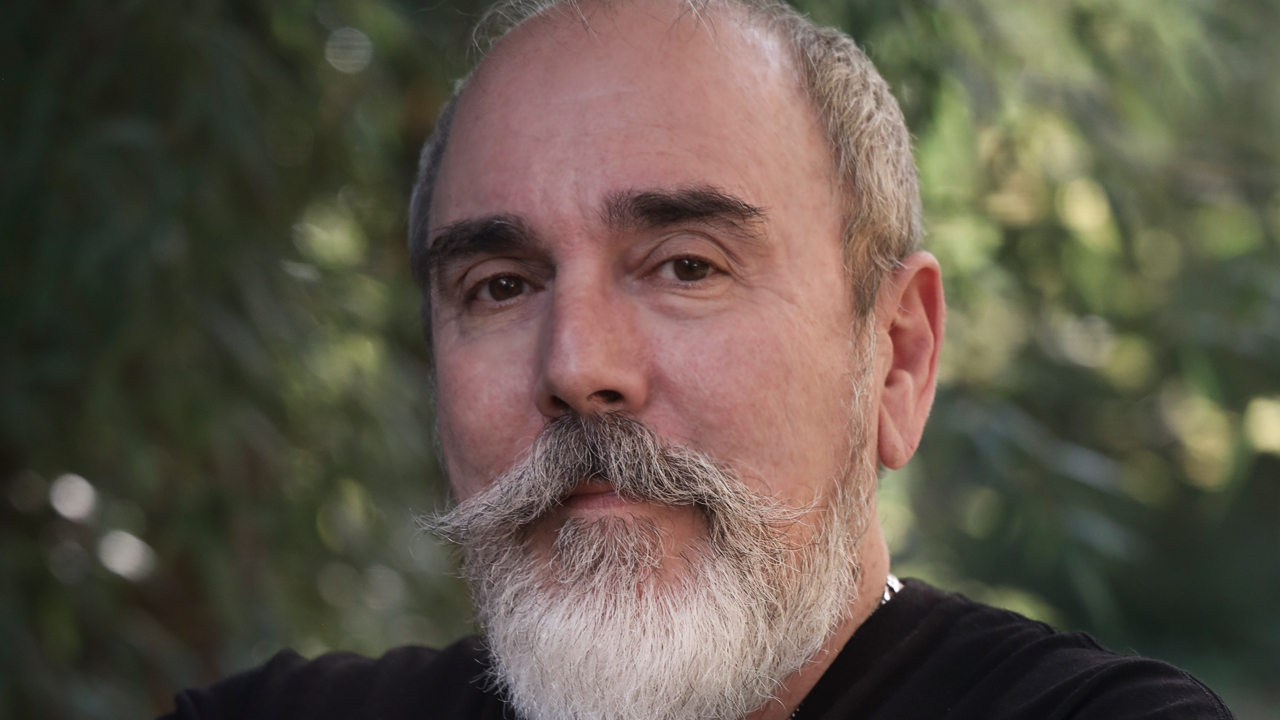“At this point in my career, I basically am Glass Hammer, so why would I try to launch a whole new thing? I like to keep working and giving fans something to argue about”: Steve Babb marks his band’s 30th anniversary
American proggers’ main maestro discusses the creation of latest album ARISE, satisfying personal expectations and what it’s like to steer the ship after three decades

Select the newsletters you’d like to receive. Then, add your email to sign up.
You are now subscribed
Your newsletter sign-up was successful
Want to add more newsletters?

Every Friday
Louder
Louder’s weekly newsletter is jam-packed with the team’s personal highlights from the last seven days, including features, breaking news, reviews and tons of juicy exclusives from the world of alternative music.

Every Friday
Classic Rock
The Classic Rock newsletter is an essential read for the discerning rock fan. Every week we bring you the news, reviews and the very best features and interviews from our extensive archive. Written by rock fans for rock fans.

Every Friday
Metal Hammer
For the last four decades Metal Hammer has been the world’s greatest metal magazine. Created by metalheads for metalheads, ‘Hammer takes you behind the scenes, closer to the action, and nearer to the bands that you love the most.

Every Friday
Prog
The Prog newsletter brings you the very best of Prog Magazine and our website, every Friday. We'll deliver you the very latest news from the Prog universe, informative features and archive material from Prog’s impressive vault.
As the co-founder of Glass Hammer, multi-instrumentalist/songwriter Steve Babb has been at the forefront of American progressive rock for around 30 years. In fact, he’s helped pen some of the genre’s most celebrated modern works, including 2005’s The Inconsolable Secret, 2011’s Cor Cordium and 2016’s Valkyrie.
The band’s latest conceptual release, ARISE – which stands for Android Research Initiative for Space Exploration – fits right alongside them, as it’s a cosmic horror narrative packed with the group’s trademark melodic and musical specialities. Babb tells Prog about the influences and ambitions behind ARISE’s amazing path.
Did any specific horror or sci-fi fiction or films inspire ARISE – For example, HP Lovecraft or Aliens?
Oh, definitely Lovecraft. On the album you’ve got a group of scientists who think they’re the superior intellects of the universe, and when they take their android out into space, they quickly find they’re not. So it just kind of becomes a battle. I love Lovecraft; and then there’s Clark Ashton Smith and the movies Interstellar and 2001: A Space Odyssey. You know, putting cosmic horror in a galactic context.
What interests you about making concept albums? Do you think it’s almost a prerequisite of prog?
When I was much younger, I was into concept albums. There was something about the way they were presented like cinema. Plus, I need to tell stories, and for a long time – until a couple of years ago – this was the way I could do it. To be honest, I’ve struggled to come up with songs that sort of fall into a greater concept. Putting out a sequence of songs, even with a central theme, is somewhat of a challenge for me now. I much prefer to let ideas build up toward a bigger story.
I’ve always liked using instrumentals as connective tissue, too. You should definitely sense that you’ve been somewhere by the end of it all. It’s fun and our fans tend to be into that. That said, I never want the story to consume the music. It’s just there to set a mood and give you something to think about. It’s never more important than making sure the music is entertaining.
Sign up below to get the latest from Prog, plus exclusive special offers, direct to your inbox!
Did the writing and/or recording processes differ this time from past albums?
This one was mostly done on my own. I had Hannah Pryor come in for several vocal sessions, and I had Reese Boyd do a lot of guitar work on it. As far as the writing goes, though, this was almost a solo record. Fred Schendel contributed to one song; usually, he and I are throwing songs back and forth at each other, but it just didn’t work out like that this time. At this point in my career, I basically am Glass Hammer, so why would I try to launch a whole new thing?
As for Randall Williams returning on drums, we’re not really looking at him as a bandmember, and it was just a logistical thing. Aaron Raulston just couldn’t get to the studio, even though we both wanted him to. We’re more of a studio project than a live band these days as well, but I do enjoy working with other people when I can.
I put the image online a few months ago and people said they wanted to buy merch that displayed it, so I thought, ‘Well, that’s my cover’
The artwork is beautifully mysterious. How did that collaboration happen?
It’s pretty stunning, right? It was done by an awesome Polish artist named Michał ‘Xaay’ Loranc, who also did our logo and the images for the last few records. Actually, I put the image online a few months ago and people said that they wanted to buy merch that displayed it, so I thought, “Well, that’s my cover.”
Was it difficult to come up with a new collection roughly a year after 2022’s At the Gate? Did you feel any pressure from fans, critics or yourself when you started working on ARISE?
There is a certain pressure when it comes to promoting the thing on social media. Plus, I’ve got it fixed in my head that albums should come out during autumn, so I always try to get the current one done by early summer. That’s the kind of thing that drives me, you know, and I don’t see me ever waiting two years to put something out. I like to keep working and giving fans something to argue about regarding which Glass Hammer record they like best!
Would you say that ARISE is a good place to start with Glass Hammer?
Some people say this one is heavier than the last one, but I don’t know about that. I mean, if you pick up ARISE and like it, you’re probably going to like everything we’ve done, even though some of it’s radically different. I think you could play any of these LPs for anybody and they would know who it was.
It’s not like anyone’s giving us a lifetime achievement award…on the other hand, we’re not at the end yet
Do you have any favourite songs from the record?
The final track, The Return Of Daedalus, which is divided into three proggy parts. It’s basically a space-rock jam, and some of it reminds me of ELP. It’s so raw, and there’s only one line of lyrics. We’ve never done anything like it, and I’m really excited about that. It’s very chaotic, too, which ties into the overarching cosmic-horror vibe, and the music video we put out for it doubles down on that.
Speaking of your history, we’re roughly at the 30th anniversary of Glass Hammer’s founding and of your first album, Journey Of The Dunadan. Are you doing anything special for that?
I’m waiting on someone to throw us a big party somewhere! But no, not really. For our 25th anniversary, I think we did a T-shirt and a compilation [2017’s Untold Tales]. You know,
I’ve mentioned our 30th anniversary on social media and it’s not like anyone’s giving us a lifetime achievement award just yet. On the other hand, we’re not at the end yet. Maybe we’ll get a party in another 30 years?
Jordan Blum hails from Philadelphia and has been writing about progressive rock and metal—among other genres—for over fifteen years. He's written books on Jethro Tull, Dream Theater, and Opeth. Outside of writing for Prog, he serves as the Associate Features Editor at PopMatters and a contributor to magazines such as Loudwire, Metal Injection, Kerrang!, Consequence of Sound, WhatCulture, and Ultimate Classic Rock. Beyond that, he holds an MFA in fiction, runs a creative arts journal called The Bookends Review, and teaches writing at several local colleges and universities.

